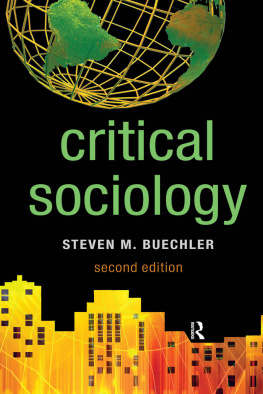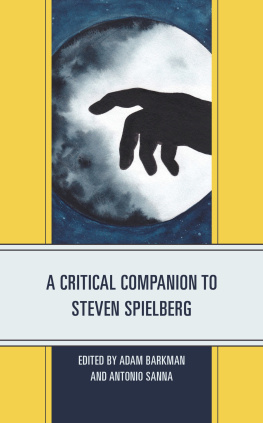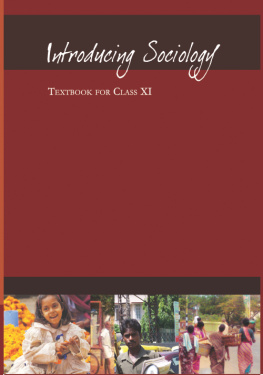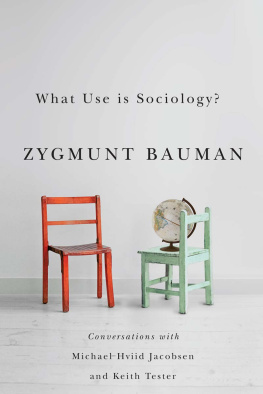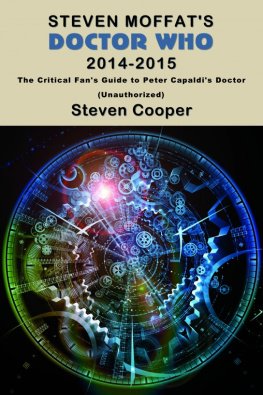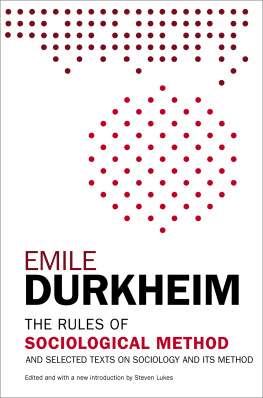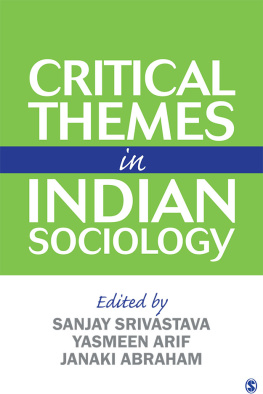Steven M. Buechler - Critical Sociology
Here you can read online Steven M. Buechler - Critical Sociology full text of the book (entire story) in english for free. Download pdf and epub, get meaning, cover and reviews about this ebook. year: 2015, publisher: Taylor and Francis, genre: Politics. Description of the work, (preface) as well as reviews are available. Best literature library LitArk.com created for fans of good reading and offers a wide selection of genres:
Romance novel
Science fiction
Adventure
Detective
Science
History
Home and family
Prose
Art
Politics
Computer
Non-fiction
Religion
Business
Children
Humor
Choose a favorite category and find really read worthwhile books. Enjoy immersion in the world of imagination, feel the emotions of the characters or learn something new for yourself, make an fascinating discovery.
- Book:Critical Sociology
- Author:
- Publisher:Taylor and Francis
- Genre:
- Year:2015
- Rating:4 / 5
- Favourites:Add to favourites
- Your mark:
- 80
- 1
- 2
- 3
- 4
- 5
Critical Sociology: summary, description and annotation
We offer to read an annotation, description, summary or preface (depends on what the author of the book "Critical Sociology" wrote himself). If you haven't found the necessary information about the book — write in the comments, we will try to find it.
Critical Sociology — read online for free the complete book (whole text) full work
Below is the text of the book, divided by pages. System saving the place of the last page read, allows you to conveniently read the book "Critical Sociology" online for free, without having to search again every time where you left off. Put a bookmark, and you can go to the page where you finished reading at any time.
Font size:
Interval:
Bookmark:
Critical Sociology
Second Edition
Steven M. Buechler

First published 2014 by Paradigm Publishers
Published 2016 by Routledge
2 Park Square, Milton Park, Abingdon, Oxon OX14 4RN
711 Third Avenue, New York, NY 10017, USA
Routledge is an imprint of the Taylor & Francis Group, an informa business
Copyright 2014 Steven M. Buechler
All rights reserved. No part of this book may be reprinted or reproduced or utilised in any form or by any electronic, mechanical, or other means, now known or hereafter invented, including photocopying and recording, or in any information storage or retrieval system, without permission in writing from the publishers.
Notice:
Product or corporate names may be trademarks or registered trademarks, and are used only for identification and explanation without intent to infringe.
Library of Congress Cataloging-in-Publication Data
Buechler, Steven M., 1951
Critical sociology / Steven M. Buechler.
pages cm
Revised edition of the author's Critical sociology published in 2008.
Includes bibliographical references and index.
ISBN 978-1-61205-641-8 (hardcover: alk. paper)
1. SociologyPhilosophy. 2. Critical theory. I. Title.
HM585.B84 2014
301.01dc23
2013044391
ISBN 13: 978-1-61205-625-8 (pbk)
ISBN 13: 978-1-61205-641-8 (hbk)
Designed and typeset by Straight Creek Bookmakers.
The title Critical Sociology has three meanings.
First, it means that the sociological perspective is increasingly critical to human survival. The good news is that we have developed the material, intellectual, and technological capacity to address problems that were previously unsolvable. The bad news is that we have created new problems that will tax these capacities to their limits. These include, to name a few, thermonuclear annihilation, climate change, terrorist anarchy, global poverty, environmental devastation, and ethnic cleansing. Whether our new capacities can meet these challenges is an open question. Given this, the sociological perspective is increasingly critical if we are to understand clearly, decide rationally, and act wisely. It is simply the best angle of vision that we have to capture life's complexity, to interpret its history, to anticipate its future, and to guide reasoned action.
A second meaning of critical sociology is that thinking sociologically inevitably involves thinking critically. It is inherent in the very nature of the sociological perspective that all familiar "truths" and established "facts" come under scrutiny. Sociology requires a skeptical and restless quality of mind. It continually questions the self-proclaimed reasons for any social arrangement. To be a sociologist is to assume that things are not what they appear to be, that hidden interests are at work, and that no claims can be taken at face value. In this second meaning, the phrase critical sociology is almost redundant, because even the most generic versions of the sociological perspective inevitably lead the sociological thinker to adopt a critical stance toward the world around them.
The third meaning of critical sociology refers to one type of sociology among others. This type is explicitly based on the values of freedom, equality, and justice. These values shape both the questions and the answers sought by this sociology. This sociology examines how social structures create relations of domination among various social groups. It is committed to exposing their operation and undermining their stability. This type of sociology is dedicated to progressive social change. The point of seeking sociological knowledge is to foster change while being as inclusive as possible about who participates in the process. To promote such change means that sociology must have a vision of a better society. It must also have the conviction that such a world is within our grasp.
In sum, critical sociology means that a sociological perspective is increasingly critical to our survival, that sociology is an inherently critical angle of vision, and that one type of sociology is explicitly dedicated to progressive change. All three meanings are in play throughout this book.
Critical sociology is relevant to many historical periods and social forms. But it began in nineteenth-century Europe and subsequently migrated to societies like the United States. Given this history and my own knowledge base, this book primarily applies critical sociology to the United States. By the same token, the United States exists in a globalizing world alongside other societies, and this analysis addresses these relationships as well.
The book is organized into five sections.
The first section describes the sociological perspective. expands on the critical school as a prelude to its application throughout the remainder of the book.
The second section addresses power and domination. explores mass media, its role as a handmaiden to economic and political power, its contradictory effects on information flows, the rise of social media, and the prospects for a vibrant civil society.
The third section analyzes inequality and difference. traces a third story of inequality with a focus on gender as the oldest, most intimate, and most pervasive basis of inequality and difference.
The fourth section examines self and society. explores the delicate construction of everyday life, including the presentation of self in the routine dramas that compose our lives.
The fifth section explores social change. advocates the democratization of society and discusses how the sociological perspective can cultivate the citizenship required for this development.
Every chapter of this new edition of Critical Sociology has been revised to streamline the text, add current references, and provide contemporary examples. The most substantive revisions include the following:
- A new analysis of the "outsourced self' in
- New discussions of the economic crisis of 20072008 in
- New observations on the twenty-first-century political scene in
- A new section providing a critical analysis of social media in
- A new overview of the status of feminism in
- A new section on the social construction of masculinity in
- An updated review of social movement theories in
- New sections on the Tea Party, Occupy Wall Street, and the Arab Spring in
- A new section on theorizing global activism in
- A new section on movements, elections, and democracy in
- An expanded discussion of global movements and democratization in
As you read this book, I hope you enjoy the journey. I also hope the book helps you become a better traveler who is more attuned to your surroundings and more capable of assessing and responding to the worlds you discover. Such is the promise of the sociological perspective.
Sociological Perspectives
How to Think Sociologically
People have always tried to make sense of the world around them. Myths, fables, and religion provided traditional ways of making sense. More recently, science has provided additional ways of understanding the world. Sociology is part of the rise of science as a means of making sense of the world.
As we know in our own time, there can be tension between religious and scientific views. Contemporary disputes over evolution, sexuality, marriage, and even the age of our planet often pit religious values against scientific interpretations. More broadly speaking, both at home and abroad, religious fundamentalisms rest uneasily alongside modern, secular worldviews. These familiar tensions have a history that takes us back to the origins of sociology itself.
Next pageFont size:
Interval:
Bookmark:
Similar books «Critical Sociology»
Look at similar books to Critical Sociology. We have selected literature similar in name and meaning in the hope of providing readers with more options to find new, interesting, not yet read works.
Discussion, reviews of the book Critical Sociology and just readers' own opinions. Leave your comments, write what you think about the work, its meaning or the main characters. Specify what exactly you liked and what you didn't like, and why you think so.

